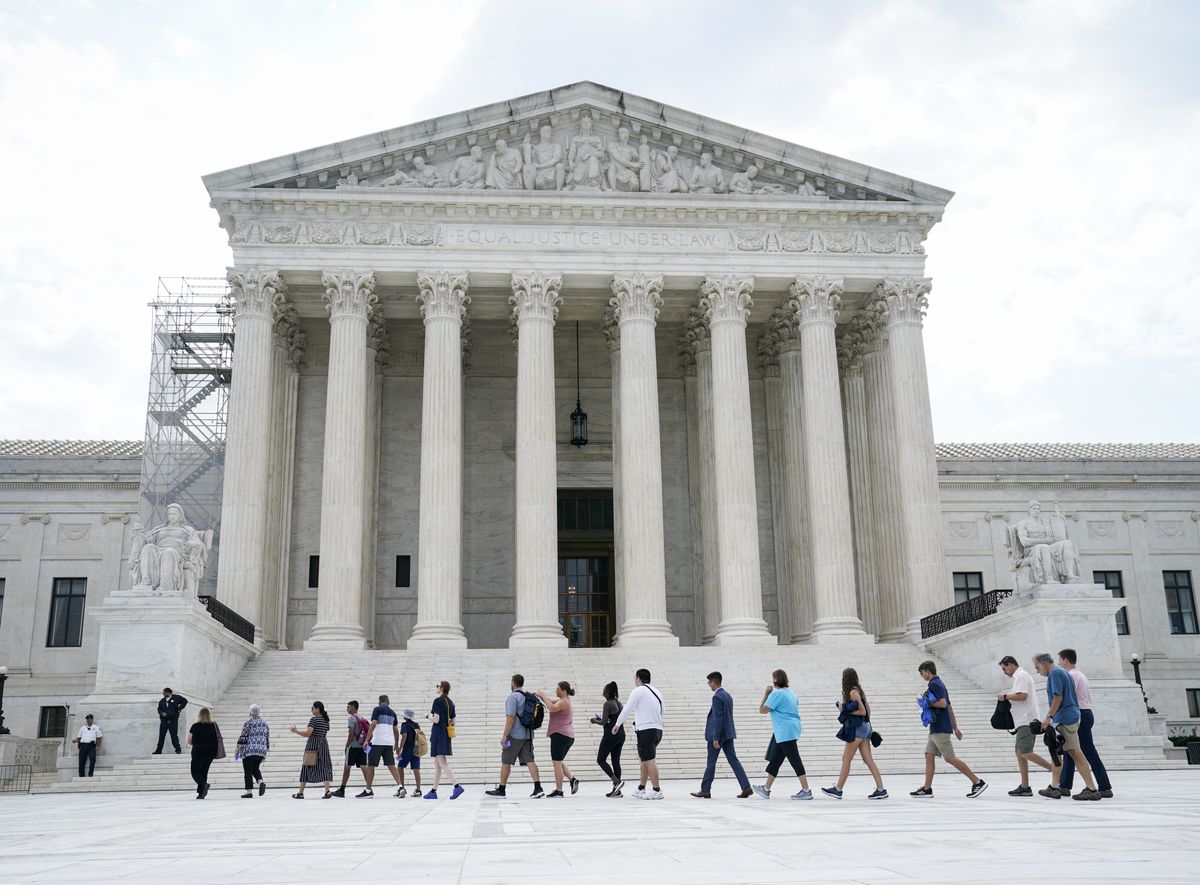The US Supreme Court will issue the final decisions of its current term this week, and so far its rulings have been surprisingly moderate for a conservative-majority court.
On Tuesday, it rejected the so-called “independent state legislature theory," a fringe legal argument to give state legislatures broadly unchecked power over federal election rules. The same theory served as the basis of former President Donald Trump’s attempt to have states send “alternative” pro-Trump electors to the electoral college to overturn the 2020 election.
While the theory has been rejected by mainstream legal scholars, it seemed likely that the justices (three of whom were appointed by Trump) might rule in its favor. The decision, which runs contrary to the growing perception that the court is a political body, reinforces checks and balances and puts the kibosh on any repeat antics in 2024.
Other decisions: The justices ruled in favor of equal voting rights and tribal rights, and against stronger environmental protections this session. It also heard two cases over tech companies' liability for harmful content, deciding both in favor of Big Tech.
Looming decisions: Four consequential rulings are expected this week on student loan forgiveness, affirmative action in college admissions, religious workers' rights, and a case at the nexus of religion, free speech, and gay rights.


















